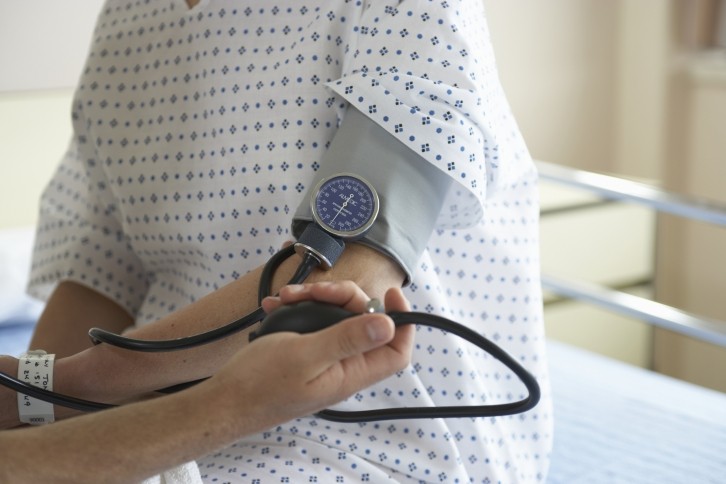Pharmactive study details benefits of aged black garlic for blood pressure reduction

The randomised, triple-blind, placebo-controlled parallel trial was conducted by researchers from the ingredient firm Pharmactive and from the Spanish research groups NUTREN-Nutrigenomics, based in the University of Lleida, and the Vascular and Renal Translational Research Group at the Institut de Recerca Biomèdica de Lleida.
A total of 77 stage 1 hypertension patients were enrolled at the Hospital Universitari Arnau de Vilanova, Spain, and given daily supplementation with 250mg of ABG10+ (0.25mg of SAC) or placebo over 12 weeks.
Blood pressure measurements revealed a reduction in systolic and diastolic blood pressure of 1.8 mmHg and 1.5 mmHg, respectively, in the ABG group.
Similarly, an increase in blood nitric oxide and antioxidant capacity and a reduction in uric acid levels and ACE activity were observed. No changes in endothelial function and inflammatory cytokines were observed.
It was concluded that low-dose SAC supplementation in an optimised black-garlic extract allows for an extra-significant reduction in blood pressure in a Grade I hypertensive population receiving drug treatment.
Alberto Espinel, Open Innovation Director of Pharmactive, states: “This study suggests that incorporating food bioactives such as aged black garlic extract into the treatment regimen could serve as a valuable complement to conventional drug therapy, and could contribute to reduced cardiovascular risk.
“Such intervention could be especially beneficial for the management of arterial high blood pressure in persons experiencing resistance to drug therapy—all without inducing side effects.”
Background
Hypertension is a leading risk factor for cardiovascular disease, including stroke and heart failure. Research has demonstrated that even modest reductions in blood pressure can lead to meaningful gains in the prevention of such incidents. For example, a reduction of 2mm Hg in systolic blood pressure can reduce the risk of stroke by 10% in middle age.
The use of garlic (Allium sativum) for treating arterial hypertension has been recognised as effective for several decades. This effect is thought to be due to the presence of various compounds, such as allicin, alliin, and S-allyl-L-cysteine (SAC), among others, which have potent anti-inflammatory, antioxidant, and vasodilatory properties.
However, tolerance to treatment is low, and several technological modifications have been developed to improve its tolerability, such as the aging process at controlled temperature and humidity.
During aging, the allicin and other sulfur compounds undergo chemical changes that form new compounds, including SAC and melanoidin. ABG has been found to have potential benefits due to the high levels of SAC, which have been shown to relax blood vessels, improve blood flow, and reduce oxidative stress, with a similar magnitude of effects in cardiovascular physiology compared to raw garlic.
The current study aimed to evaluate the antihypertensive effects of a daily intake of a low-dose SAC-optimized ABG extract for 12 weeks in individuals with Grade I hypertension following blood-pressure-reducing drug therapy.
Blood pressure measurements were recorded daily at home by the participants as well as at baseline and at the end of the study by specialists.
Primary outcome was the reduction in office and home blood pressure. Secondary outcomes such as endothelial function, nitric oxide, inflammatory cytokines, angiotensin-converting enzyme activity, and antioxidant capacity levels in blood were determined to explain the antihypertensive effect of ABG.
“These secondary parameters help us gain an understanding of the likely mechanism behind ABG10+’s effect on blood pressure,” explains Espinel, “Nitric oxide is a natural vasorelaxant produced in the body to maintain cardiovascular function, improving blood pressure, and increasing blood flow. Nitric oxide also is a cellular antioxidant and thus helps mitigate oxidative stress and its associated negative effects on blood vessels and the cardiovascular system. Reducing the angiotensin converting enzyme activity is a key strategy to decrease blood pressure in hypertensive patients.”
Source: Nutrients
https://doi.org/10.3390/nu15173691
"Antihypertensive Effects of an Optimized Aged Garlic Extract in Subjects with Grade I Hypertension and Antihypertensive Drug Therapy: A Randomized, Triple-Blind Controlled Trial"
Authors: Serrano, J.C.E.; Castro-Boqué, E.; García-Carrasco, A.; Morán-Valero, M.I.; González-Hedström, D.; Bermúdez-López, M.; Valdivielso, J.M.; Espinel, A.E.; Portero-Otín, M.












